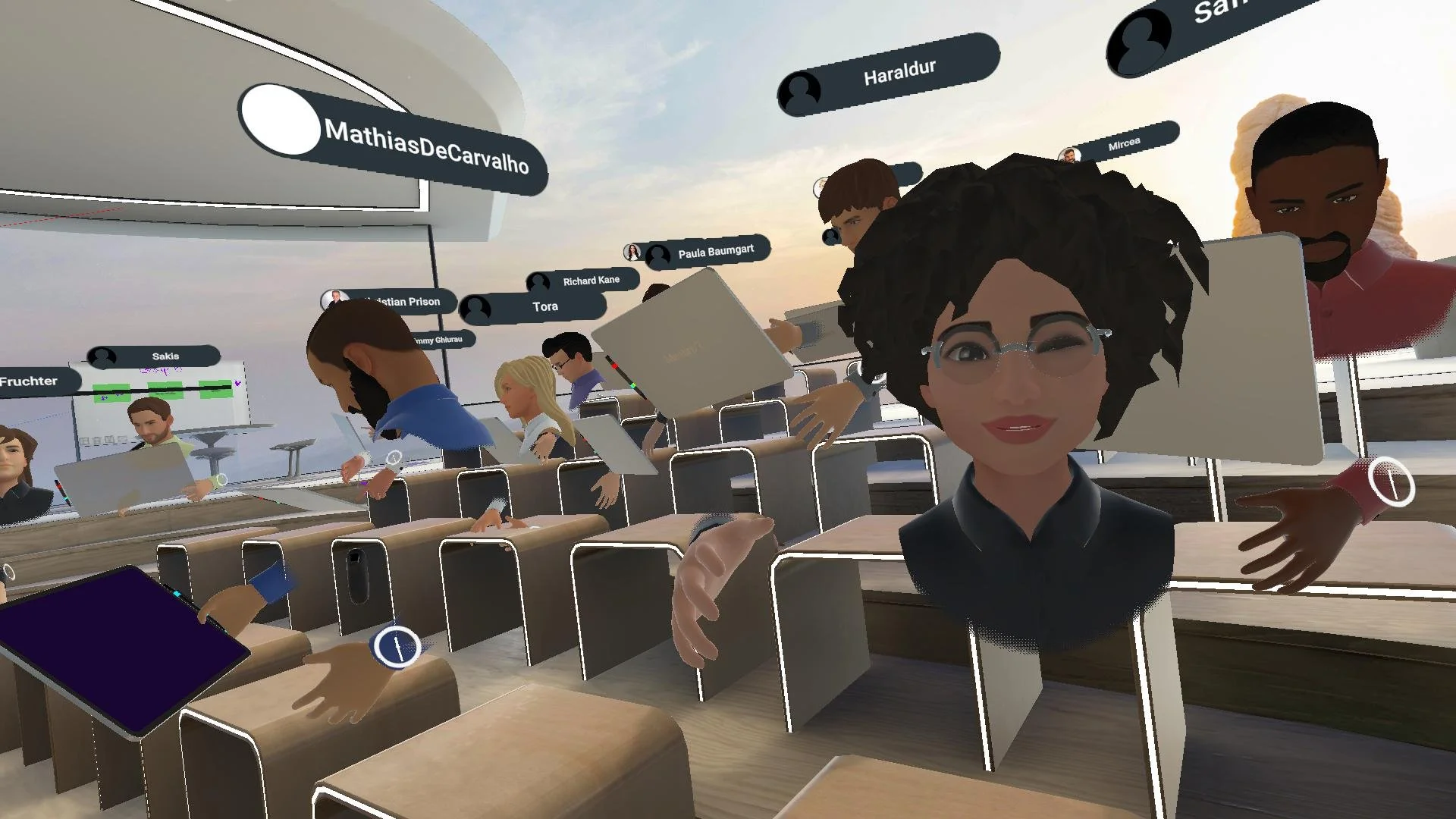Nijole's World Premier at DOK Leipzig
Antanas Mockus and I working on Nijole’s presentation “Works and Reflexions” at the Contemporary Art Center of Vilnius.
I am one of the 4 components of a trip to Lithuania in 2016: Nijole, Antanas, Sandro (the director), and me. Of the 4, today we are 3. We wanted to make a biographical film and we ended up making a film about the relationship between art and love, about freedom. This film, called Nijole, will become Cinema (with a capital C) in a few days: the world premiere will be at the 61st edition of the Leipzig Festival, the European documentary's temple; just a day after Herzog, in person, released his latest documentary; in the competition that highlights the next masters of the documentary. But this is nothing: the film will see the light in the country where Nijole was trained as an artist, and from which the conditions that later led her to Colombia arose. The film will be screened for the first time, only one month after his death. Those who will see this film, will see it, in its essence, next to the essence of his son Antanas (his work). Nijole yearned to make art without an object. This movie is that, it's herself, made light.
“Antanas Mockus was Mayor of Bogotá, several times Colombian presidential candidate, and voted into the senate in 2018. But this film is not about the politician, but about his 88-year-old mother, the idiosyncratic artist Nijolė Šivickas. She has consistently protected her private life from the public eye, agreeing only reluctantly to media interviews. Even her son knew almost nothing about her Lithuanian childhood. In her artistic practice, but also emotionally, she had turned her back on her homeland.
Now Nijolė has been invited to give a workshop on the occasion of a great retrospective in Vilnius. The film follows her and Antanas on this journey. It’s basically a son’s look at a mother whose independence and critical social spirit were his constant inspiration. Sandro Bozzolo and his team approach their protagonists with restraint, adapt the montage to their rhythm and focus on the rooms of their creative work, on Nijolė’s meetings with Antanas and their journey home together, which moves both deeply. The son takes his mother by the hand, as does this story of an outer and inner journey with the audience. Which events continue to shape one’s life and which had better be forgotten?”
